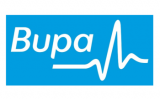Compare Health Insurance Quotes
In conjunction with our service through Activequote you can:
- View more than 50 quotes online
- Compare the UK’s leading insurers
- Tailor your quotes online with live price updates
- Buy your chosen health insurance online
- Get free advice from a health insurance specialist
Save money on your health insurance!




Key points to think about when choosing health insurance
Before you take out health insurance, there are a few questions you should consider.
As with any financial product, it’s best to seek independent advice if you’re unsure.
- What does the policy cover?
- What are the exclusions?
- What level of cover is right considering my circumstances?
- Is there a compulsory or voluntary excess?
- Does this policy build up a no-claims discount?
What is private medical insurance?
Private medical insurance is generally aimed at covering specific, acute health conditions that might affect you in the future. An acute condition can be described as a health problem that’s likely to respond quickly to treatment so that you can return to your previous level of health – for example, an illness requiring a brief hospital stay, or a broken leg.
Before you consider taking out private medical insurance, it’s important to remember that you the vast majority of insurers won’t cover you for the following things:
- Emergency treatment – if you have an illness or injury that requires you to visit A&E, this will be handled by the NHS. Planned follow-ups, however, may be covered by your policy. So, if you break your leg, your initial emergency treatment will be carried out by the NHS, but if you’re asked to come back for a scheduled operation on it, this may be covered by your policy.
- Chronic conditions – illnesses, diseases or injuries that either continue indefinitely, have no known cure, come back (or are likely to come back), need long term monitoring or need ongoing control or relief of symptoms.
- Existing conditions – having an existing health condition won’t generally prevent you from being covered for other conditions, but you won’t be covered for that condition either at the time of taking out the policy or in the future. Many private health insurance providers will ask you to complete a medical declaration when you sign up, confirming your current state of health.
- Non-essential medical procedures – private medical insurance policies tend to exclude things like IVF, pregnancy-related healthcare, and cosmetic surgery.
What types of medical insurance are available?
Comprehensive private medical insurance
This is probably what most people think of when it comes to private medical insurance. Comprehensive cover pays for private diagnosis and care at a time that suits you. There are many different variations depending on the insurance company, so research your options carefully before committing to a provider.
Comprehensive policies will often include:
- A choice of hospitals, both NHS and private
- A faster diagnosis
- A choice of specialists
- Flexible appointments
Comprehensive policies may offer the option of:
- Treatment for mental health conditions
- At-home nursing care
- Complementary or alternative therapies (such as acupuncture or osteopathy)
- Dental cover
- Optical cover
- Enhanced cancer cover (this may include extra assistance such as a free helpline or a payout on diagnosis to help with essential expenses)
Basic private medical insurance
If you find that comprehensive medical cover is beyond your budget, or that it doesn’t fit your needs, many medical insurance providers offer a range of options when it comes to reducing your costs.
These basic policies will usually cover only some stages in the healthcare process – for example, you might be covered for private treatment following an NHS diagnosis, or vice versa. Some policies give you the option of going private if NHS waiting lists exceed six weeks.
On-demand private medical treatment
If you’re happy to rely on NHS treatment for most of your healthcare needs, but would like to access private treatment for a specific non-emergency procedure – for example, a hip replacement – many private healthcare providers offer this option.
Opting to have this kind of procedure done privately means that not only will you be seen faster than on the NHS, you’ll also benefit from things like a choice of hospitals, a private room (where possible) and appointments to suit your schedule.
Many providers also offer cashback plans, which provide cash payments to help with everyday healthcare costs. These plans allow you to pay for your treatment and then claim back some (or all) of the costs in the form of cash refunds.
Top 10 Tips When Buying Medical Insurance
- Remember that if you already have medical insurance through your employee benefits package, you don’t need separate private health insurance.
- You can get free care on the NHS, so private medical insurance is not a necessity in the UK. If your budget is tight, it’s best to proritise things like car insurance, home insurance or debt repayment over private medical insurance.
- If you have sufficient savings, you may find that it’s more cost-effective to pay for individual treatments rather than it might be more cost effective to pay for any treatment you may need privately than to pay regular insurance premiums.
- If you have a busy schedule, private treatment can be useful for non-emergency procedures as appointments will usually be more flexible. You can usually choose which hospital you visit and which specialist you see.
- Some specialist drugs and treatments aren’t available on the NHS because they’re too expensive or not approved by the National Institute for Health and Clinical Excellence in England and Wales (NICE) or the Scottish Medicines Consortium (SMC). However, some private medical insurance plans will fund experimental treatments.
- Many people appreciate being given their own room when in hospital and private medical insurance means that you’ll usually have access to an ensuite room for overnight stays. Most rooms will also have home comforts like a TV and WiFi.
- Private medical insurance is an extra, not a necessity, and can be very expensive. A typical family premium, covering two adults in their 40s and two children under 10, can vary from £700 to £1,650 per year.
- Premiums tend to rise every year, and with age – so by the time you’re older, and more likely to need hospital treatment, you may not be able to afford it.
- If you have sufficient savings, you can pay for a private consultation if you want a second opinion, or to see a specialist. If you’re in a position to pay for treatment this way, it may be a more cost-effective approach.
- Some private medical insurance providers offer incentives, including discounted gym membership, spa discounts, health screenings and no or low-claims bonuses for those who can demonstrate a commitment to healthy living, i.e. by not smoking and taking regular exercise.
Medical Insurance Brands
Medical Insurance Links
-
- Affordable Private Medical Insurance
- Best Private Medical Insurance
- Business Medical Insurance
- Cheap Private Medical Insurance
- Child Medical Insurance
- Company Medical Insurance
- Comprehensive Medical Insurance
- Corporate Medical Insurance
- The Cost of Medical Insurance
- Dental and Medical Insurance
- Expatriate Medical Insurance
- Family Medical Insurance
- General Medical Insurance
- Global Medical Insurance
- International Private Medical Insurance
- Low Cost Medical Insurance
- Maternity Medical Insurance
- Medical Insurance Abroad
- Medical Insurance and Gym Membership
- Medical Insurance Brokers
- Medical Insurance Companies
- Medical Insurance Coverage for the EU
- Medical Insurance Expatriate
- Medical Insurance for Children
- Medical Insurance for Expats
- Medical Insurance for Over 65s
- Medical Insurance for Pregnancy
- Medical Insurance for the Self Employed
- Medical Insurance for Working Abroad
- Medical Insurance Moratorium
- Overseas Medical Insurance
- Pre-existing Medical Insurance
- What is Private Medical Insurance?
- Worldwide Medical Insurance


